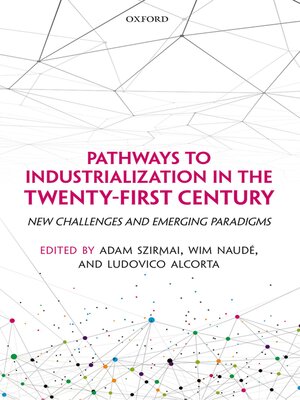Pathways to Industrialization in the Twenty-First Century
ebook ∣ New Challenges and Emerging Paradigms · WIDER Studies in Development Economics
By Adam Szirmai

Sign up to save your library
With an OverDrive account, you can save your favorite libraries for at-a-glance information about availability. Find out more about OverDrive accounts.
Find this title in Libby, the library reading app by OverDrive.



Search for a digital library with this title
Title found at these libraries:
| Library Name | Distance |
|---|---|
| Loading... |
Over the last two centuries, the experiences of the first wave of industrialized countries in Europe and the US, and the more recent experiences of the East Asian Tigers, Indonesia, Malaysia, Thailand, China, India, and Vietnam, have illustrated the transformative nature of industrialization. There are reasons to believe that industrialization will continue to be one of the major engines of growth, transformation, and socioeconomic development. Industrial development enables a more rapid advancement toward developed country living standards. But many challenges remain, and new challenges have arisen. These include: integration into global value chains; the shrinking of policy space in the present international order; the rise of the Asian driver economies; new opportunities provided by resource-based industrialization; the accelerating pace of technological change in manufacturing; how to deal with jobless growth in manufacturing; creating adequate systems of financial intermediation; and how to respond to the threats of global warming and climate change. Under present conditions it may be more difficult than ever for the poorer developing countries to foster industrial development and structural change. They face a more complex, and daunting set of circumstances than the developing countries that embarked on industrialization after 1950. These changing and challenging circumstances require new thinking, and in particular new paradigms to guide researchers, policy makers, and international development organizations in the future. The book includes chapters on the experiences of Africa, Latin America, China, and Indonesia, as wells as thematic chapters on structural change, jobless growth, the evolution of industrial policy, and the challenges of environmental sustainability and climate change. It provides a timely analysis of the circumstances and challenges facing developing countries in industrialization, and offer fresh ideas for new paradigms to carry forward industrial policy in the future.







